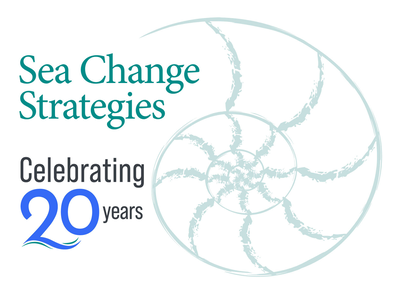Communicators are from Mars. Fundraisers are from Venus.
I have a confession to make.
I know with great intimacy the conflict that occurs between communications/marketing people and fundraisers, because not that long ago I was part of the problem.
Throughout most of the 1990’s I was the communications director for a large national organization. Not only did I have a negative attitude toward the direct marketers on staff, I passed that bit of arrogance on to my team.
I remember being in a meeting with my comms team and trashing the print newsletter that membership sent to donors. Childish, dumbed-down, stilted copy, blah blah blah. That day a friend from membership overheard my rant and called me out. I was pretty embarrassed. She reminded me that newsletter brought in hundreds of thousand of dollars. And later when I did focus groups with members, I discovered they almost universally loved the newsletter that once seemed beneath my dignity.
Today I write that ‘stilted, childish’ stuff for a living. And I am super-sensitive to the conflict that arises, almost universally, between communications and fundraising teams at most of the organizations we work with. I’ve lived both sides of the conflict.
Here’s my take: Both sides are right. And both sides are wrong.
The fundraising-communications disconnect is one of the most stubborn and internally damaging symptoms of what we would term a ‘culture deficiency.’ It’s a big reason why we researched and wrote our latest whitepaper, Inside Out Fundraising: How to Create a Culture of Philanthropy By Treating Systems Instead of Symptoms.
When communications (sometimes termed ‘marketing’) and fundraising don’t work well together, the organization is the big loser. Communicators bring outside the box creativity and strategic smarts to the table. Fundraisers, and here I mostly mean direct marketers, bring an almost scientific rigor to message development. No one knows their audience better than the membership folks.
Communicators are able to bring a big picture perspective to the conversation. Fundraisers bring the laser focus of very specific and very tangible KPIs.
And, like many systemic issues, one dimension of the problem, and one that is almost never addressed, is the issue of hearts and minds.
As a comms director, I had a constant sense that we were the second-class citizens of the organization. Program was why the organization exists. Fundraising, was where the money cames from. That wasn’t just a neurotic worry. During my tenure there were three rounds of organizational layoffs. In each instance I had to let the most people go of any department.
Today, as a fundraiser, I understand the anxiety that comes with living and dying by your numbers. Budget goals are often passed down from on high. They are often unrealistic. And that creates wide-eyed insomnia-inducing pressure. Direct marketers are the ultimate empiricists of an organization. They’ve tested copy, messaging, imagery, and narratives down to a gnat’s tushy.
And donors don’t always behave the way we would like them to behave. So it’s not uncommon for a comms or program person to share ‘new fundraising ideas’ that the fundraisers know will fail. And fundraisers have to put up with jerks like me, who once considered fundraising ‘a necessary evil.’ So it’s understandable that the fundraisers may react irritably.
It’s not impossible to meld the talents and skills of fundraisers and marketers. And where it happens, organizations are often at their best. But it takes clear leadership, thoughtful structure and perhaps above all a meeting of hearts and minds. When the right ingredients are in place, your organization can shine.
